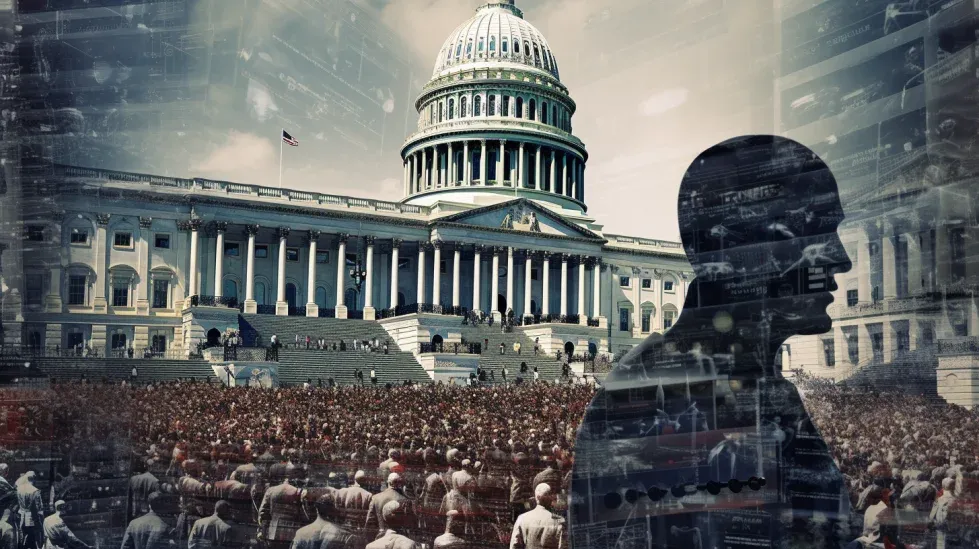2. Labor tensions: The acceleration of AI will continue to reshape industries, automating jobs and displacing workers. That will lead to widespread tension in various sectors of the economy. Union leaders could make AI the centerpiece of their strikes, and you might hear a lot of talk about “reskilling” workers on the lips of lawmakers heading into the 2024 election. This time it’s sure to work …
3. Copyright clarity: We don’t really know how AI models are trained, but we know they’re at least partially trained on unlicensed copyrighted material. Clarity is coming in Europe: The forthcoming AI Act mandates some transparency about training data. But in the US, where regulation is sparse, the courts are considering a big legal question about whether using copyrighted material as training data violates the law. At issue is whether the output is “transformative enough.” The answer to this legal question has extremely high stakes. Look for authors and artists to keep suing. But also look for companies, under pressure from lawmakers, to start opening up about how their systems are trained, whether copyrighted material is used, and why they think the stuff their models spit out does not constitute copyright infringement. We at GZERO aren’t holding our breath for writers' royalties (but we’d sure take ’em).
4. A big new law in Europe: The European Union’s AI Act is set to become law in the spring of 2024. Of course, lawmakers could falter before hitting the finish line, but an agreement this month made that unlikely. What’s ahead: The EU just held the first of 11 sessions to hammer out the details of the law, which will lead to a “four-column document” by February, reconciling proposals from the three EU legislative bodies. Only after that will country representatives vote to finalize the act. But this landmark law won’t have teeth in 2024 even if everything goes to plan because there’s a 12-month grace period for companies to comply. It’s all hurry up and wait.
5. The hype cycle continues: Major investment in AI won’t be a flash in the pan for 2023. With hints of lower interest rates, and still-palpable interest in AI from tech investors hungry for massive returns, expect the billion-dollar valuations, IPOs, mergers and acquisitions, and the big-moneyed investment from top tech firms in startups all to accelerate.
6. Congress does something: The US Congress does more bickering than lawmaking today. But there’s real political will to not get left behind on AI regulation. Lawmakers have been regularly discussing AI, grilling its corporate leaders, and brainstorming ideas for governance. They’ve proposed removing red tape for chipmakers, mandating disclosures for AI-generated political ads, and even considered a “light-touch” law-making AI developers self-certify for safety. It’s not necessarily likely that the US will pass something sprawling like the EU’s AI Act, but Congress will likely pass something about AI in the coming year. More than 50 different AI-related bills have been introduced since the 118th Congress began last year, but none have passed through either house of Congress.
7. Antitrust comes for AI: Regulators are circling. The US government sued Google for allegedly abusing its monopolies in search and advertising technology, Amazon for hurting competition on its e-commerce platform, and Meta for buying dominant market power through its Instagram and WhatsApp acquisitions. That’s the hallmark of current FTC Chair Lina Khan and Justice Department antitrust chief Jonathan Kanter, who have been set on enforcing antitrust law against Big Tech. And that fervor is likely to hit AI in 2024. There’s lots of political will to use antitrust law in the UK and Europe, which means scrutiny will soon come to AI. In fact, it’s already here. The FTC and the UK’s Competition and Markets Authority are reportedly probing Microsoft’s investment into OpenAI – it’s not a full-fledged investigation yet, but in 2024 antitrust regulators will be watching AI very closely.
8. Election problems: In 2024, an unprecedented number of countries – some 40-plus – will head to the polls, and many will have their eyes on places like the United States and India for the use of AI in disinformation campaigns ahead of Election Day. There is concern about deepfake technology fueling confusion or contributing to an already-challenging misinformation problem. We’ve already seen deepfake songs impersonating Indian Prime Minister Narendra Modi and videos portraying US President Joe Biden. But what we haven’t seen yet is AI disrupting an election. Will 2024 be the year that AI-generated words, videos, images, and music play a surprising role in elections?
9. New companies you’ve never heard of. By the end of 2024, the top companies in AI may be the same as today: Anthropic, Google, Meta, Microsoft, and OpenAI. But chances are there will be a startup that you've never heard of on the list. Why? Not only is innovation an everyday reality in AI, but investors are excited to fund these projects to reap potential rewards. In the first half of 2023, AI's share of total startup funding in the US more than doubled from 11% to 26% compared to the same period in 2022. That includes household names and challengers you might have already heard of, such as OpenAI ($29 billion) and Anthropic ($5 billion), which had big funding rounds this year. But there are 15 new AI "unicorns" (billion-dollar companies) that could break into the mainstream, including the enterprise AI firm Cohere ($2.2 billion) and the research lab Imbue ($1 billion). Even in a high-interest rate environment, AI startups have fetched big valuations despite still-paltry revenue estimates — at a time when “easy money” has vanished from the broader tech sector. Expecting stasis would be foolish.
10. The real reason Sam Altman was fired: Expect to learn why OpenAI really fired Sam Altman in 2024. It’s perhaps the great mystery in AI, but it can’t remain a secret forever. If anyone knows the answer, please let us know.
